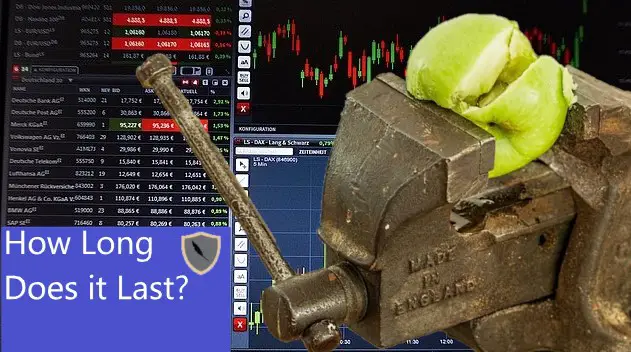Lots of people when learning fundamental analysis tend to focus on the wrong skills to master. As a result they become disheartened and stop before starting to earn money. Fundamental Analysis is easier than you might expect, and there really are only 5 skills that you need to know to become a master.
The top 5 skills for professional fundamental analysis are; reading ability, research ability, financial modeling, hedging, and patience.
Each of these 5 skills takes time to master. Once you become good at them however you will be able to routinely discover good investments in any stock market in the world. This is because all businesses operate on the same fundamental level, to make money.
As such, this article is going to easily explain how to get good at each of these 5 skills so that you can become a master at fundamental analysis. If you give 10 minutes to reading this then you will become instantly better at the stock market.
Here at Chonohistoria I help investors generate alpha, or higher then normal market returns, in their portfolio. I constantly put out stock research articles along with tips and tricks for the trade. If you like content like this then feel free to subscribe to the free newsletter to remain up to date.
Without wasting any time, let’s jump right into the top 5 skills for fundamental analysis
What is Fundamental Analysis?
Fundamental analysis is when an investment researcher looks at the fundamentals of an investment to determine if the investment has a high likelihood of returning a profit.
The fundamentals of an investment are variables inherent within the investment itself. Variables such as the value of the land, value of the company, the company’s inventory, or any other variable that affects the investments bottom line.
For fundamental analysis you are only going to be looking at these variables. The market value of the investment, the stock, does not matter. This is because you are trying to figure out if the market values the company wrong. If the market does, then you will make money.
The best place to start with fundamental analysis are financial documents hosted on your country’s regulatory market exchange. For the United States that is the Securities Exchange Commission. (Click here for their website)
Skill 1: Reading Ability
In order to be a good fundamental analyst you need to be able to both read well and read fast. This is because you will be encountering hundreds of pages of text in a single day.
The above image is of Apple Inc’s 10-k financial document. This alone is 66 pages of advanced reading material that goes over everything that makes Apple a great company and potential investment. (Click here for source on 10-k)
Often you will read 5-8 of these documents in one day, every day. You absolutely have to get good at picking out the vital information from these financial documents in an efficient manner.
As such, you have to practice reading these documents as that is the only way to get better at understanding everything. Reading is the main skill you need to be a successful investor.
In fact one of the main reasons for Warren Buffet’s success is because he reads, and reads a lot. When asked by an interviewer as to how to be successful in the market Buffet stated “read 500 pages like this every day. That’s how knowledge builds up, like compound interest.“
It’s simple…Read to Succeed.
Skill 2: Research Ability
While reading is important you can’t just read financial documents alone to become good at investing. In order to ‘win’ at the stock market game you need to be able to combine primary source information from a multitude of resources.
For example, Apple has a great 10-k financial document. Everyone has read the document and agrees that Apple is a good investment. However, where each researcher goes from there is important.
I might say for example that the e-commerce sector is going to explode over the next 10 years and as such Apple’s online store products are going to push Apple to higher revenue over the next 5 quarters.
This above chart from the U.S Census demonstrates this thesis that e-commerce is going to continue to uptrend. Because of this I am performing outside research to support my thesis that Apple is going to go up in price. (Source)
Professional stock investors are the world’s best researchers. This is because stock research is one of the few things where time spent reading and researching directly translates to increased revenue growth for funds and investment banks.
It is not uncommon to see professional research analysts have salaries in the $200,000-$1,000,000 per year. This is because they are world class athletes who are good at finding little variables that will generate alpha in their own or a clients portfolio.
So how do you get good at researching? Well the answer is simple…just start finding things that will impact your potential investment. You already read the 10-k and know what the company does, now it’s time to find trends that will either cause the company to grow in value or decline.
Gather up all your research and critically evaluate it. Present it to your colleagues/friends for their opinion. Think long and hard about your findings and if at the end you’re still confident in your investment thesis, then place the investment and make money.
Skill 3: Financial Modeling
Ok, its no secret that financial modeling is the ugly part of the job. It takes time to build the right models. Further, financial modeling for many research analysts is about as fun as pulling teeth.
However, it is a necessary requirement to get good at fundamental analysis. This is because by building financial models you will begin to understand exactly how a company is valued by the stock market. You will understand how analysts evaluate potential investments and how to price in the variables you research about.
The good news is that you don’t have to become a professional at financial modeling to be a great investor. You do however have to understand how a financial model works. This will give you an idea of what variables are going to impact the underlying stock’s valuation on the market.
Financial Models in their most basic form are simply excel documents that recreate the entire company’s financial report. Since they are in excel they can be edited and each individual variable such as ‘revenue’ or ‘operating expenses’ can be changed.
This allows you to experiment with the company, say for example the overhead decreased while the revenue increased. Naturally this would increase the stock’s price. Revenue and operating expenses are just two variables. The more you input to your financial model the more accurate and larger it will become.
You don’t have to build a DCF (Discounted Cash Flow) model for each potential investment. Just understanding how the models work and learning how to build basic ones is enough to get you started.
Skill 4: Hedging
Hedge, like a rich person’s plant? No.
Hedging is when you place a second investment that will gain in value if your first investment starts to decline in value. Essentially, you are betting against yourself so that your overall investment (investment 1 and 2) will always be positive.
Hedging is designed to protect your portfolio from pitfalls and is one of the secret skills of fundamental analysis. If done properly you will nearly always be making money, even if your main investment failed.
Researchers who perform fundamental analysis always know what their potential investment does, its risks, and how to properly hedge against the investment. This is hedging, and it’s a secret weapon for professional fundamental analysis researchers. Hedging allows them to consistently return large returns in the market.
In the above chart we can see the logic behind the concept of hedging. Investment 1 is the main investment that you spent time performing fundamental analysis on. You know the business model, the risks, and most importantly what will succeed if your investment fails.
What you need to do is simply place a position in investment 2 (hedge). This will make sure you are going to make money in the market no matter what.
However, there is no such thing as a perfect hedge. No company or investment is an exact inverse of your potential investment. A good hedge profile on an investment will look like the following chart.
No hedge is perfect, but the above image is as close to perfection as the street can get to right now. Notice how on day 8 your second investment (investment hedge) was worth more than your primary investment (investment 1)? In this scenario you actually made money when your primary investment failed, or went against you.
Pretty good huh? A good fundamental analysis researcher will practice hedging constantly; it’s a vital skill to learn. This is because even the best of us will make mistakes or predict something wrong. As such you always need to have a hedge.
Skill 5: Patience
You absolutely need to give your investments and your fundamental analysis time to work. Patience is a vital skill to investing in the stock market and if you practice it you will see a return on your investment.
I talk with so many novice investors who have an amazing investment. The research is top notch, the hedge is great, and the underlying investment thesis is great. However they fail to practice the primary skills of fundamental analysis, patience.
It’s going to take time for your investment to work in your favor. Investing is not a sprint, it’s a marathon. Like any good thing in life it takes dedicated practice of skills and time to achieve.
The biggest mistake you can make is not giving your investment time to work. If you practice all of the above skills properly but fail to practice patience you will sell your investment before you even have time to see a ROI.
Investors who trade constantly always see a lower total return at the end of the year then those who just invest and wait. The market will go up, and it will go down. There is nothing you can do about that. However if you perform fundamental analysis skills properly then you will eventually see profit.
In fact this is the secret weapon of the most successful investors in the history of investing. Investors such as Ray Dalio, Warren Buffet, Charlie Munger, Benjamin Graham, Jim Simmons, and many more. They all exhibit one key skill in the market, the skill of patience.
You need to stick to your guns and wait for your investment to work.
Conclusion
There you have it: the top 5 skills needed for professional fundamental analysis. If you practice these then you will consistently see higher than normal market returns. Consider the time spent as an investment into yourself.
As always if you like content like this then feel free to subscribe to the free newsletter. I constantly put out stock research articles and tips/tricks of the trade. Who knows, maybe a little reading time about the market might make you a millionaire. Then you can give a recommendation to little old ChronoHistoria, I will still be here doing what I love; stock research and teaching.
Further, you can check out some of the other posts below.
-
How Long Does a Short Squeeze Last? (3 Answers)

What is the time frame for you short squeeze? Well here is everything you will ever need to know to determine how long it will last.
-
Why You Still Own a Stock After It’s Delisted and How to Sell It

Do you still own a stock after its delisted? How do you sell it? Don’t worry the stock is still worth money and here is how to sell.
-
Can You Make 1% A Day in the Stock Market? (3 Steps)

Making 1% a day in the stock market is hard but defiantly doable. Here are 3 simple steps to helping you achieve this return.
Until next time, I wish you the best of luck in your investment journey.
Sincerely,


